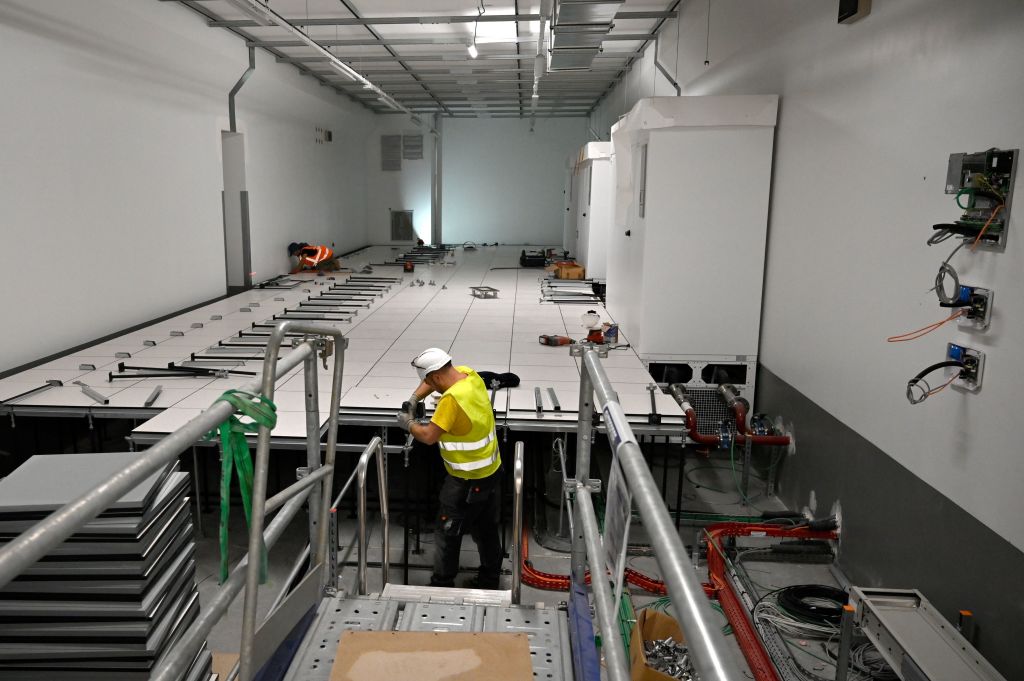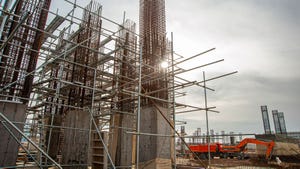January 22, 2020

Data center provider Digital Realty Trust has issued about $1.5 billion worth of bonds to pay off debt of its European rival and takeover target Interxion in an apparent attempt to sweeten the deal for Interxion shareholders, many of whom are said to be unhappy with the acquisition agreement the two companies announced last year.
The day before Digital (DLR) announced bond pricing and commencement of the offering, its CFO Andrew Power said he was "befuddled" by the "chirping" Interxion shareholders had been doing over the deal. They didn't understand its "subtle nuances," he told financial analysts at a conference on January 7.
San Francisco-based Digital’s share price has sagged since it announced the deal in October, although it has since recovered some of the loss. Meanwhile, Amsterdam-based Interxion’s shareholders are said to be so unhappy with the deal, that speculation is mounting that they may rebel when called to vote on it. Digital's offer valued the EU data center operator too cheaply, some reckon, and would leave them short-changed.
"It's befuddling to me... some of the reaction," Power told the analysts. "I respect all shareholders and all their opinions. [But] I think the nuance is a little under-noticed. I think the chirping about the deal doesn't pay due to the deliberation and diligence" the two companies’ leadership had done before striking the deal.
"So I think it's underestimated, the likelihood of completion of this deal,” he said. “I think this underestimates the strategic value of the combination.”
Interxion (INXN) was a successful company, he said, and its management set up the deal because they reckoned it would be good for their shareholders, not because there had been pressure to sell, he said. "It wasn't with any backs up against the wall."
Calming Measures
The following day, Digital said it had arranged to get close to $1.9 billion in cut-rate loans, most of which it could use to pay off heavy Interxion debts. It announced pricing and commencement of the bond offering before a vote on the deal by Interxion's shareholders. Digital hedged by saying the proceeds could also be used to refinance or finance data center construction or renewable energy projects. It would be required to redeem the notes earmarked for repayment of Interxion’s debt at 101 percent of their principal amount plus interest, if the deal didn’t close by January 27, 2021.
This, after the share swap, was the other part of the American giant’s two-pronged takeover offer: Digital would shoulder the $1.5 billion debt Interxion had accumulated as it built its European data center empire.
Interxion's data centers are highly prized for their rich customer and interconnection ecosystems. But they had come at a high price because Interxion had been too small to get competitive interest rates on the capital it raised to build them. At least compared to Digital, whose upper-class credit rating would allow it to raise cheap loans to pay off Interxion's burden and free the pair to fund expansion in South America, Asia, and Africa.
Power said Digital had arranged to "pre-fund the refinancing" because it wanted to guarantee it could fulfil its offer. Its motive was a drop in the stock market, he said.
A Souring Offer
Interxion's share price fell after the deal was announced too. But Digital’s fell about twice as much. This weakened the other prong of its takeover offer: a share swap, by which Digital would give Interxion shareholders about 70 percent of a single DLR share for every one they held in the EU firm.
Both firms were riding high on the stock market when Digital announced its offer on 29 October. DLR shares were selling for $132 a-piece. A swap then would have valued Interxion shares at $93 each and the firm's 78 million shares at $7.3 billion in all.
However, by January 7, after both their share prices had deflated, the deal valued Interxion at $83, Digital said in a formal offer it posted with the US financial regulator that day. Interxion shareholders were said to be unhappy with the offer price even when DLR was at its height. They had since lost $10-a-share, and a billion dollars off the total.
This is the problem shareholders have with the deal, said Nate Crossett, an analyst with Berenberg Bank. It's not that they don't understand it.
"Investors understand the space," he said. "They agree that strategically the combo is perfectly fine. It's just the price they don't agree on."
Berenberg conducted a straw poll of all Interxion investors and found that “pretty much everybody doesn't like the price,” Crossett said. “They just don't want to sell at this price.
Rival Suitors
This situation gave credence to a rumor posted on a markets website that a private equity firm and a group of rebel shareholders were preparing to snatch Interxion with a better deal before Digital could complete its own. They were aiming to put their deal to shareholder vote in February, according to Street Insider.
Interxion had talked with eight other potential suitors in the last four years, including a sovereign investment fund, a global asset manager, and public and private data center rivals, according to an account of events in Digital's regulatory posting. Any of them might have already done enough due diligence on Interxion to quickly mount a rival bid, Crossett said.
Those suitors had already been subject to another rumor, planted in a trade newspaper on 10 October, the day after Interxion and Digital concluded their own takeover talks, and weeks before they announced it. The rumor said, apparently falsely, that Interxion was entertaining simultaneous bids from a whole bunch of suitors. Its share price shot up immediately and has outdone DLR ever since.
The pair set their takeover price at about 18 percent more than Interxion's share price on the day they agreed it – the day before the rumor misled the market. At that inflated price, and at the same premium, Interxion's takeover price would have been around $100. That is if it was this news that sent Interxion shares up to a higher equilibrium (though it too has sagged). Some analysts say it was worth $100 and more anyway. The higher Interxion went, the more shareholders would lose when their holdings were swapped with DLR at the old ratio.
African Expansion
Interxion's share price buoyed up after Power's complaint about investor “chirping” on January 7 and after Digital announced that it had raised the money to pay Interxion's debts. The EU data center operator had meanwhile agreed to buy a majority stake in Icolo, an East African data center operator it has nurtured with money and guidance since 2016.
Digital saw Interxion as a vehicle for expansion into Africa, Power told analysts. And that, said Crossett, demonstrated the strategic sense in the deal. Interxion, and by extension Icolo, needed more capital at better rates to expand in Africa at this moment, when African internet infrastructure was just beginning to be filled out and it was all up for grabs.
The biggest challenge to building such infrastructure as internet data centers in East Africa, and there are many, is getting capital, Icolo CEO Ranjith Cherickel said in December. Digital Realty on the other hand has ready money and a need to shift its weight away from the US, where business has slowed, said Crossett.
About the Author
You May Also Like







